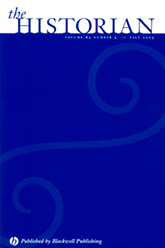A balanced media diet

Every presidential election cycle, I get interested in politics all over again. This recent election was no different. But apart from conversation with politically-minded friends, something has to fuel and sustain the interest over the long months of the build-up to the election: informative and entertaining media sources. During the many months before November 2016, the go-to media source for me was The Young Turks, an online news show.
TYT is a progressive daily (Monday through Friday) show that is freely available live on YouTube. It has pros and cons for me. The big benefit is the commentary of Cenk Uygur, the outspoken founder and co-host. Like a more aggressive Noam Chomsky, Cenk cuts through the noise of establishment rhetoric to tune into a rarefied perspective about what’s really going on behind the scenes in the halls of power (it rarely looks pretty). The drawback of the show is a lack of intelligent conservative perspectives to provide a counterpoint to Cenk’s commentary. Cenk and his co-hosts (who rarely disagree with him on substantial issues) are always “right” and listening to TYT exclusively can lead one to develop political blinders, in my opinion.
There are intelligent counterpoints out there, though. Recently, I picked up The Economist from the bookshelves of Barnes and Noble. I used to read The Economist weekly back in college, but let my subscription lapse some years ago. Like TYT, the magazine has a self-confident tone backed by factual evidence. There are some areas where The Economist agrees with TYT, such as on the threat of climate change. On other issues–such as support for the Trans-Pacific Partnership (TPP) and whether the Democratic Party should go in a populist direction–these two media sources disagree. (more…)
New history articles (August-December 2012 edition)
Since I’ve fallen behind on my monthly articles and books posts, I’ve decided to condense the past several months into a couple final posts for the year. That way, I can start 2013 afresh with the regular format, reviewing and previewing books and articles every month. Below are the articles for the second half of 2012 that interested me but that I haven’t had a chance to review on this blog.
…
December
“Vernacular Metaphysics: On Terrence Malick’s The Thin Red Line“ by Robert Pippin in Critical Inquiry (Winter 2013).
“How Motion Pictures Industrialized Entertainment” by Gerben Bakker in The Journal of Economic History (December 2012).
“Ethical Progress as Problem-Resolving” by Amanda Roth in The Journal of Political Philosophy (December 2012).
…
November
“Intuiting Gods: Creed and Cognition in the Fourth Century” by Marilyn Dunn in Historical Reflections (Winter 2012).
“Imagining the Unconscious” by Wouter J. Hanegraaffa in Intellectual History Review (Winter 2012).
“Overshadowed New York” by Cyrus R. K. Patell and Bryan Waterman in American Literary History (Winter 2012).
… (more…)
New history articles (June 2012 edition)

With this post, I’m starting a new monthly article series called “Historical Proceedings” that reviews a sampling of the new historical articles published in mostly academic journals (but also some popular magazines). I’m a few months behind on these and also on my monthly posts about new history books, but I’m working to catch up.
As with the books, I’ll be choosing articles every month that I think are interesting, enlightening, and well written (all, admittedly, subjective criteria). I hope these posts inspire you to read new works of history and to share your comments with me below.
…
 “The Repression of Soviet Koreans during the 1930s” by Alexander Kim in The Historian (Summer 2012).
“The Repression of Soviet Koreans during the 1930s” by Alexander Kim in The Historian (Summer 2012).
Joseph Stalin killed so many people from so many different communities during his purges of the 1930s that it’s hard to deny the veracity of the quote that is often attributed to him: “a single death is a tragedy; a million deaths is a statistic.” To understand the human toll of the purges, it helps to take a closer look at one cross-section of the population that was affected by them.
Alexander Kim writes in The Historian, a publication of the Phi Alpha Theta Historical Honor Society, about Soviet Koreans who were forcibly relocated from their homes in the Far East to barren lands in Kazakhstan. That they were accused of trumped-up charges of spying for the enemies of the Soviet Union was not unique by Soviet standards of the 1930s. But Kim describes how the Soviet Koreans’ integrality to the local economy (they were adept vegetable farmers) and easy ability to escape Soviet authorities by crossing the border into China delayed their repression by Stalin’s agents. That was something most other groups were not able to do during the purges. (more…)
leave a comment